rationality

Shermer and Van Leeuwen discuss: his own personal religious journey (or lack thereof) • “believe,” “make-believe,” and “pretend play” • “taking God seriously” • 4 Principles of Factual Belief • Tanya Luhrmann’s How God Becomes Real: Kindling the Presence of Invisible Others • willing suspension of disbelief • group identity • sacred values • The Puzzle of Religious Rationality • that voice we all hear in our heads • “hearing the voice of God” • hallucinations and psychoses • sleep…
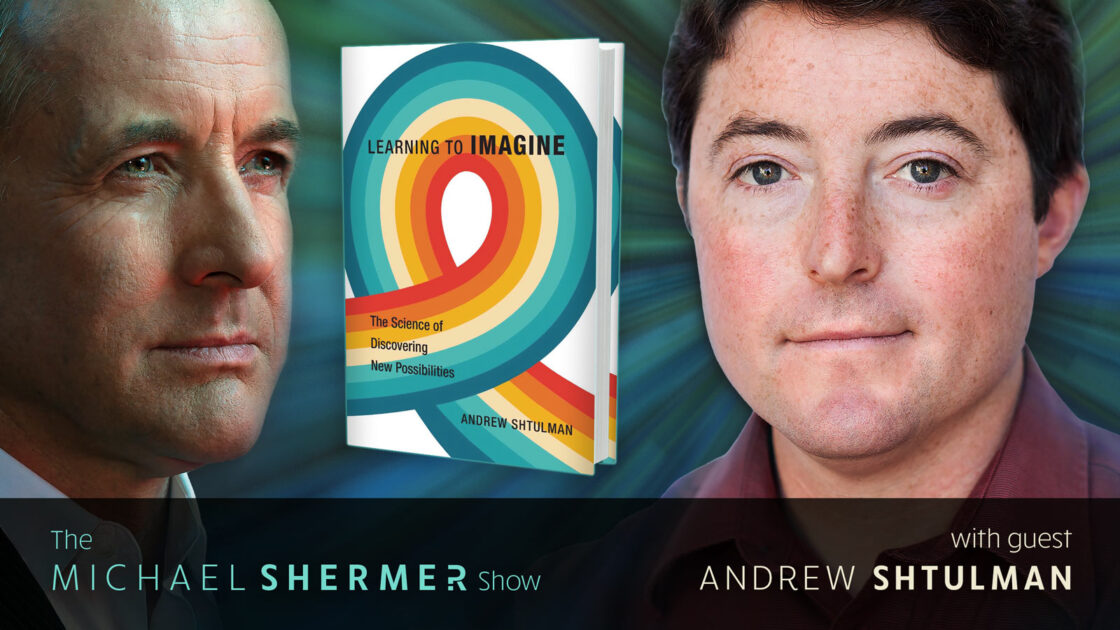
Shermer and Shtulman discuss: • imagination: the capacity to generate alternatives to reality • imagination’s purpose and structure • anomalies and counterfactuals • principles: scientific, mathematical, ethical • models: pretense, fiction, religion • development of imagination • how children understand causality • purpose of pretend play • theory of mind • religious practices • AI and creativity • The Beatles • Montessori education.
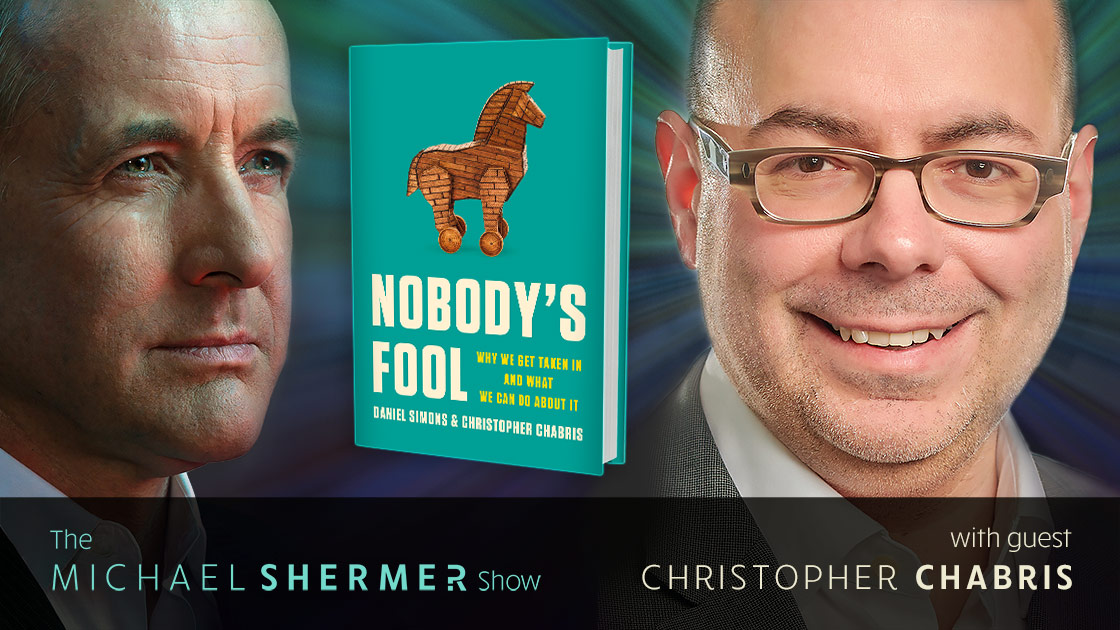
Shermer, Simons, and Chabris discuss: • How rational vs. irrational are humans? (Daniel Kahneman vs. Gerd Gingerenzer) • Truth Default Theory, or Truth Bias • deception vs. deception detection • social proof and the influence of others on our beliefs • cults • Bernie Madoff • Harvey Weinstein • Elizabeth Holmes and Theranos • Nigerian spam scam • cheating in chess • habits of thought that can be exploited • information hooks we find especially enticing instead of triggering skepticism…
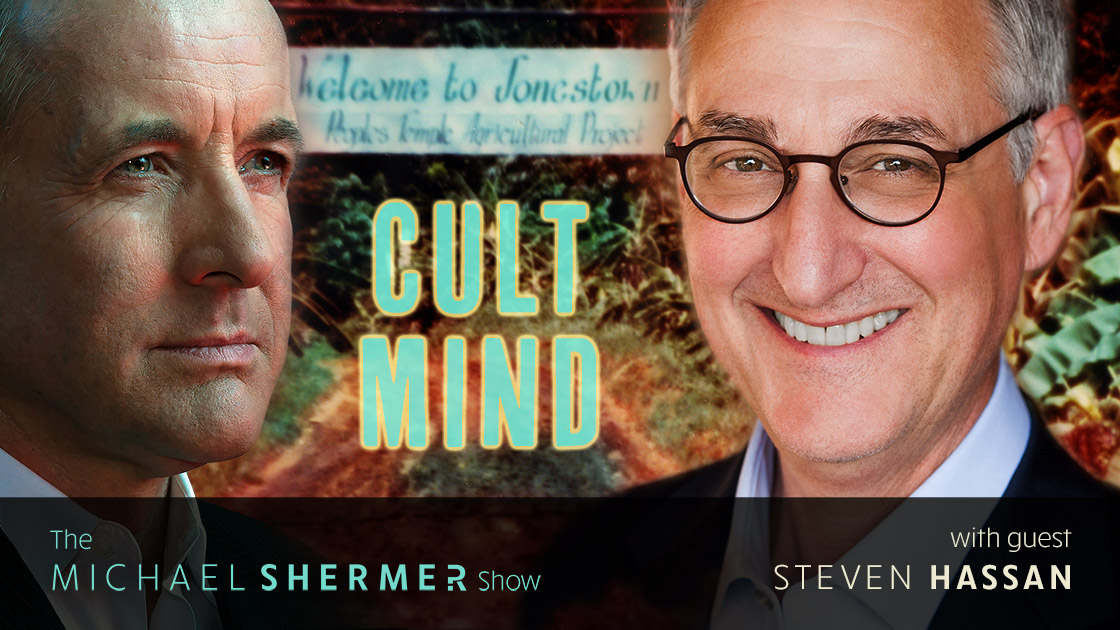
Shermer and Hassan discuss: types of cults, their characteristics • cult leader profiles • the influence continuum • mind control • brainwashing • Project MK-ULTRA • Scientology • NXIVM • strip search hoax • social media mind control • neuroscience of mind control • authoritarian mindset • Trump’s mind-control techniques • breaking free of cults.
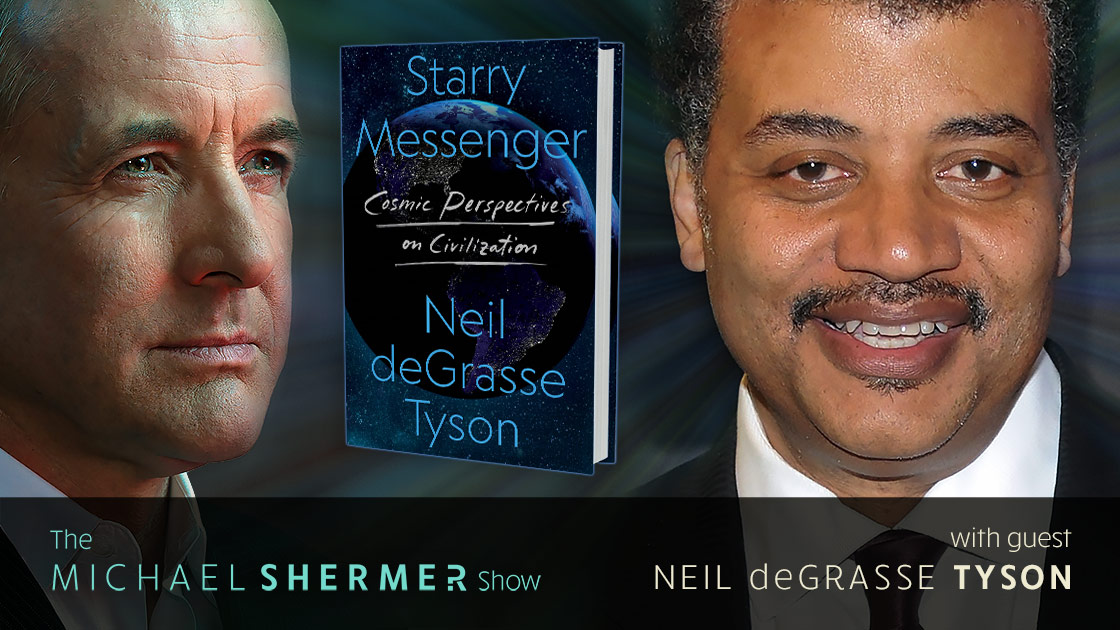
Shermer and Tyson discuss: why he decided to write about social, cultural, and political issues now • conflict and resolution in science and society • moral progress in society and why it happens • meatarians and vegetarians • race and gender • law and order • the principle of interchangeable perspectives • conflicting rights and how to resolve them • Rationalia (Neil’s hypothetical country whose laws are based on rationality) • life and death • how long Neil would like…
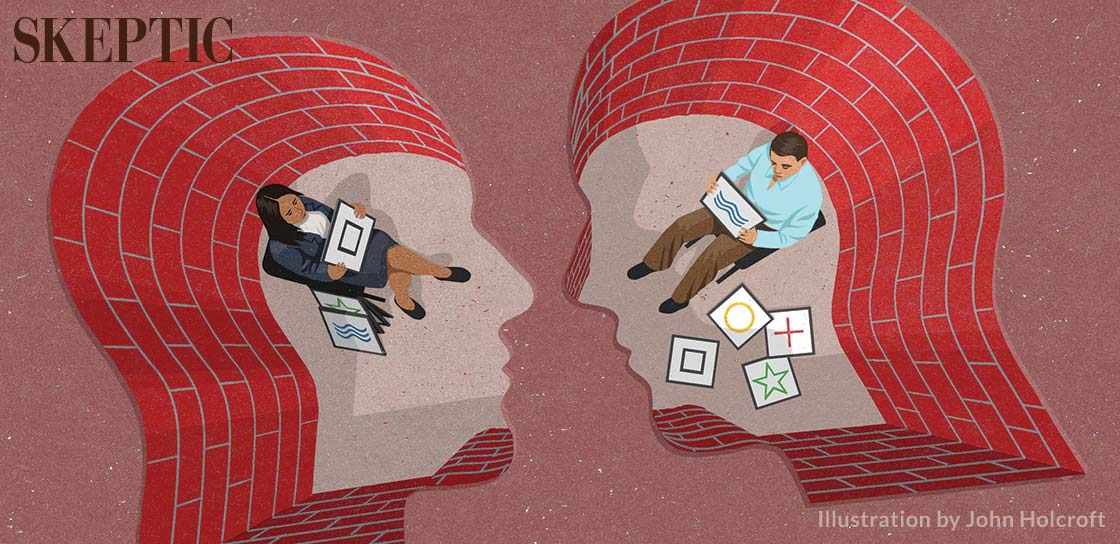
A three-part debate between Steven Pinker and Brian D. Josephson, initiated from a private email exchange in which Josephson challenged Pinker’s claims in a BBC radio program that there is no rational reason to believe in ESP. Here, Pinker first makes his case, followed by Josephson’s critique, and then Pinker’s response to that critique. As is our custom, we prefer to steel-man a position someone else holds, especially with a controversial subject like ESP, but better still is to have…
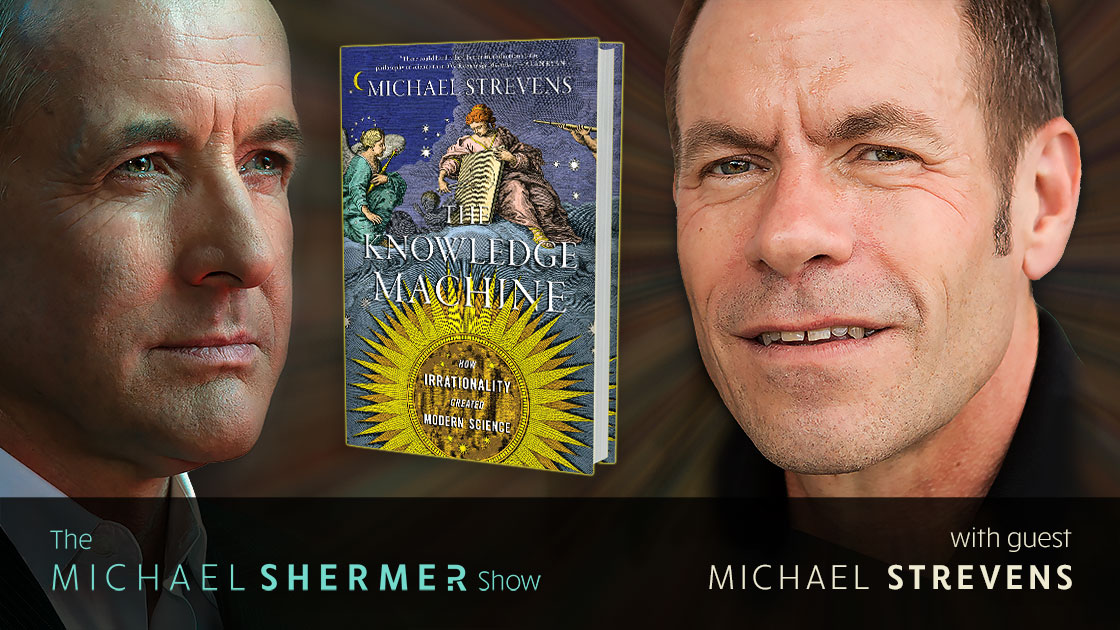
Shermer and Strevens discuss: irrationality and how it drives science • the knowledge machine • the replication crisis, what caused it, and what to do about it • verification vs. falsification • the iron rule of explanation • Bayesian reasoning vs. falsification • climate/evolution skeptics • model dependent realism • humanism • theistic arguments for: God, origin of life, morality, consciousness • known knowns, known unknowns, and unknown unknowns • how to evaluate media sources of science.
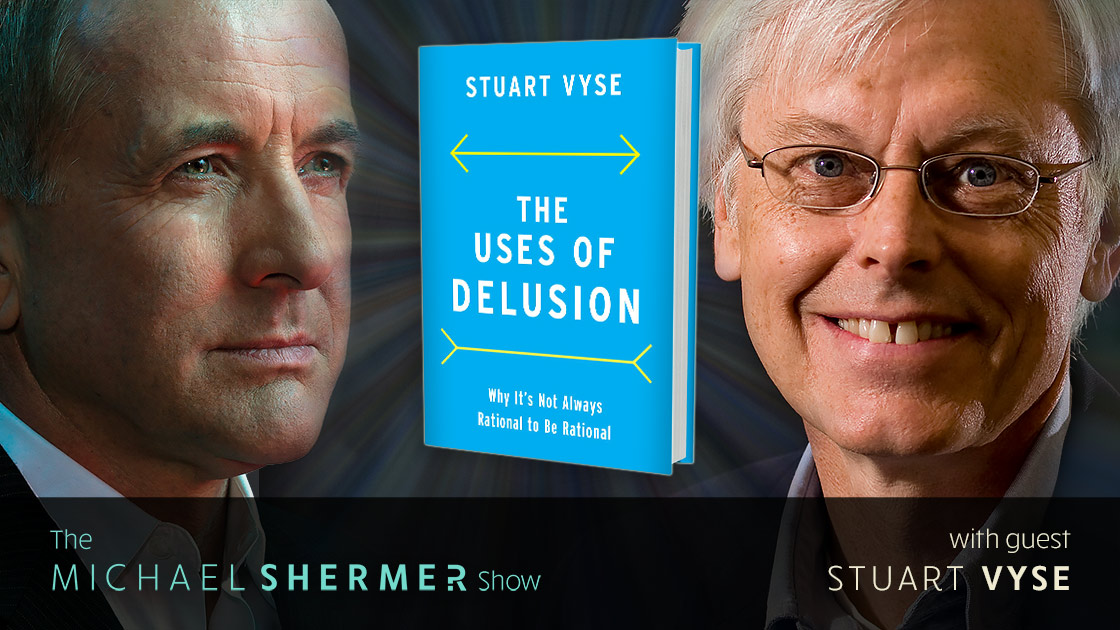
Michael Shermer speaks with psychologist and behavioral scientist, Stuart Vyse, about aspects of human nature that are not altogether rational but, nonetheless, help us achieve our social and personal goals. In his book, and in this conversation, Vyse presents an accessible exploration of the psychological concepts behind useful delusions, fleshing out how delusional thinking may play a role in love and relationships, illness and loss, and personality and behavior.

Shermer and Theroux discuss: how documentary films are made • religious fanaticism • UFO cults • Scientology • neo-Nazis • anti-Semitism • prisons, pornography, and prostitution • Jeffrey Epstein and Jimmy Savile • self-help movements and gurus • deception and self-deception • social proof and human conformity • are humans naturally rational, irrational, or both?
Michael Shermer Speaks With Louis Theroux About Neo-Nazis, Jimmy Savile, UFO Cults, and Scientology. PLUS: In SRC Report PCIS-006, we take a look at Conspiracy Theory Endorsement by Media Viewership.

“How can we save the world from stories?” Michael Shermer speaks with Jonathan Gottschall about The Story Paradox: How Our Love of Storytelling Builds Societies and Tears Them Down. Gottschall reveals why our biggest asset has become our greatest threat, and what, if anything, can be done.
“How can we save the world from stories?” Michael Shermer speaks with Jonathan Gottschall about The Story Paradox: How Our Love of Storytelling Builds Societies and Tears Them Down. Gottschall reveals why our biggest asset has become our greatest threat, and what, if anything, can be done.
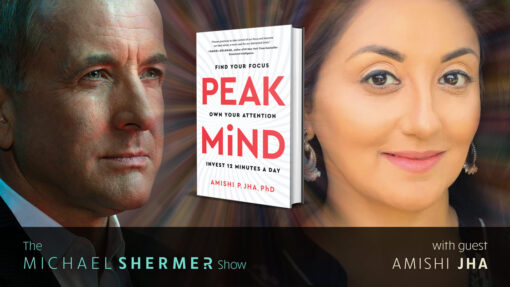
In episode 232, Michael Shermer speaks with neuroscientist and professor of psychology, Amishi Jha, about how to achieve Peak Mind, based on her book Peak Mind: Find Your Focus, Own Your Attention, Invest 12 Minutes a Day.
In episode 232, Michael Shermer speaks with neuroscientist and professor of psychology, Amishi Jha, about how to achieve Peak Mind, based on her book Peak Mind: Find Your Focus, Own Your Attention, Invest 12 Minutes a Day.
Michael Shermer is now writing on Substack with a new, weekly column called Skeptic: Examining the World Through a Scientific Lens. PLUS in a wide-ranging conversation Shermer and Richard Nisbett discuss Nisbett’s research showing how people reason, how people should reason, why errors in reasoning occur, and how much you can improve reasoning.
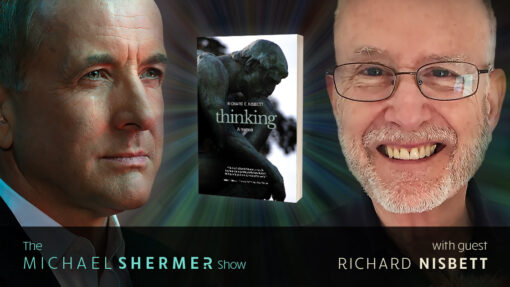
In a wide-ranging conversation Shermer and Richard Nisbett discuss Nisbett’s research showing how people reason, how people should reason, why errors in reasoning occur, and how much you can improve reasoning.
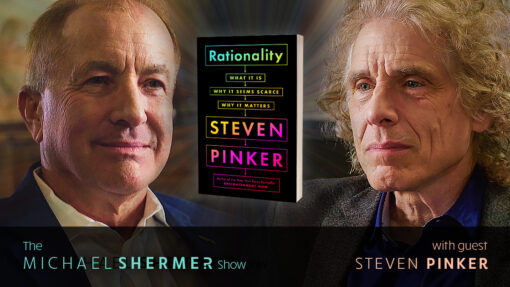
In episode 219, Michael Shermer speaks in person with Harvard psychologist Steven Pinker about his new book Rationality, about how today humanity is reaching new heights of scientific understanding — and also appears to be losing its mind. How can a species that developed vaccines for COVID-19 in less than a year produce so much fake news, medical quackery, and conspiracy theorizing?
In episode 219, Michael Shermer speaks in person with Harvard psychologist Steven Pinker about his new book Rationality, about how today humanity is reaching new heights of scientific understanding — and also appears to be losing its mind. How can a species that developed vaccines for COVID-19 in less than a year produce so much fake news, medical quackery, and conspiracy theorizing?

Michael Shermer and Richard Dawkins discuss: conversations with Neil DeGrasse Tyson, Steven Pinker, Matt Ridley, and Christopher Hitchens • Popperian falsification vs. Bayesian reasoning • evolutionary adaptationism • the myth of natural selection as a “force” • E.O. Wilson and group selection, multilevel selection, and other misunderstandings about evolutionary theory • metaphors and analogies in science: artificial selection • convergent evolution • ETIs • Trumpism, and more…
In episode 205, Michael Shermer speaks with Richard Dawkins about evangelizing for evolution, science, skepticism, philosophy, reason, and rationality, based on his new book Books Do Furnish a Life: Reading and Writing Science.
NEXT →






















